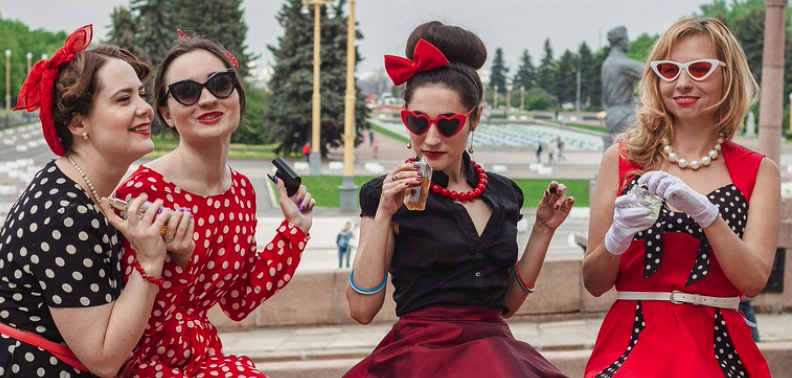Unleashing Your Scent Superpowers: Can You Develop a Perfume Nose?
If you’ve read our perfume reviews, and we’d be rather offended if you haven’t, then you know we have a nose for scents. Like many perfume reviewers, one must possess a delicate prowess for deciphering the construction of scents. We also frequently discuss perfumers, or “perfume noses,” who create and construct perfumes for major luxury brands. Perfume noses must have almost supernatural scent detection and creativity. Their heightened sense of smell must supercede that of normal noses.
But does that mean its impossible to develop olfactory senses that allow you to critically break down a scent, or further, develop your own? The truth is, developing a discerning nose requires hours of practice. Like anything, the more you do it, the better you’ll get. Sure, some folks are born with a heightened sense of smell, but even they need to practice their smelling art if they desire working in a perfume industry.
But hey, maybe you only want to increase your olfactory senses. Whatever you desire, here’s some tips that can help you achieve a new level of scent superpower.
Practice Heightening Your Scent Awareness

We live in a world surrounded by scents. Some we love, others we disdain, some we find inconsequential. No matter our feelings towards a scent, recognizing that scent in our senses is paramount in heightening your awareness for scent profiles. Moreover, smell training became an impactful process following COVID-19’s wrath, which robbed many people of their sense of smell.
How do you start? You begin by paying attention to fragrances you encounter during your daily life. For example, the fragrance of coffee brewing in the morning, or spring flowers, or mowed grass. Take the time to observe and identify daily scents. This will help your brain learn to distinguish between types of scents. When you smell a perfume, you’ll encounter a multitude of fragrance notes. If you’re untrained, you can’t distinguish or discern each note on an individual level. When you isolate scents in your daily life, you learn to recognize a single scent among layers of scents. In a nutshell, that’s how recognizing a single note in a fragrance works.
Educate Your Nose – The Hard Nose School of Perfumes
Did you like our play on “hard knocks?” Probably not, but that is beside the point.
If you want to learn to review perfumes, create them, or merely contribute to sophisticated cocktail party gab regarding fragrances, you’ll need to educate yourself on those scents. You’ll do this by testing out lots and lots of fragrances. You’ll spritz the wrists, smell, and write down your thoughts. You’ll match your scribe with the perfume’s notes and see what you got right. Now, you shouldn’t look at this process in a black and white perspective. Just because a perfume list exact notes doesn’t mean that’s what you’ll smell. You may catch cranberry or sandalwood but that isn’t listed on the fragrance. Great perfume reviewers understand that blends of notes can emulate other scents. Yeah, its complicated.
The other prominent issue here is affordability. Buying perfume bottles only for the sake of testing them isn’t exactly economical. Instead, try perfume samples. In this way, you receive a small portion of a lot of unique and popular perfumes and you can test them over weeks.
As a side note, you can also educate your nose using essential oils. Buy essential oils, set them up to burn during the day, and write down what you smell.
Deeper Smell Training
Obviously, nearly every suggestion for increasing scent awareness involves some facet of smell training. In this section, we’re talking about specific training which isolates fragrances categorically.
Smell training exercises are instrumental in developing a perfume nose. Create a collection of fragrance samples or essential oils representing different scent families. Take time each day to focus on one scent and analyze its nuances. Inhale deeply, paying attention to the top, middle, and base notes. Train your nose to detect subtle variations and identify the building blocks that compose a fragrance.
Compare, Contrast, Decipher
Once you feel comfortable recognizing notes in fragrances and deciphering the class of a fragrance, its time to compare and contrast fragrances against one another.
Experience fragrances side by side, noting the similarities and differences in their scent profiles. This practice helps you refine your ability to discern distinct notes and appreciate the complexity of each composition.
In a sense, this is the most advanced stage of training your sense of smell. Once you can compare scents, you can interlink scents from memory. To better explain, consider when a perfume reviewer reviews a single smell, then compares that scent to a fragrance they aren’t reviewing. This is because they are able to compare and contrast scents. This allows them to draw up from memory a perfume from the past that has similar features to the one they’re reviewing.
Developing a perfume nose is an exciting journey that requires patience, practice, and a genuine passion for fragrance. Whether you desire a prowess for engaging in high-society conversations or you want to open a YouTube perfume review channel, heightening your sense of smell can be an exciting venture.

